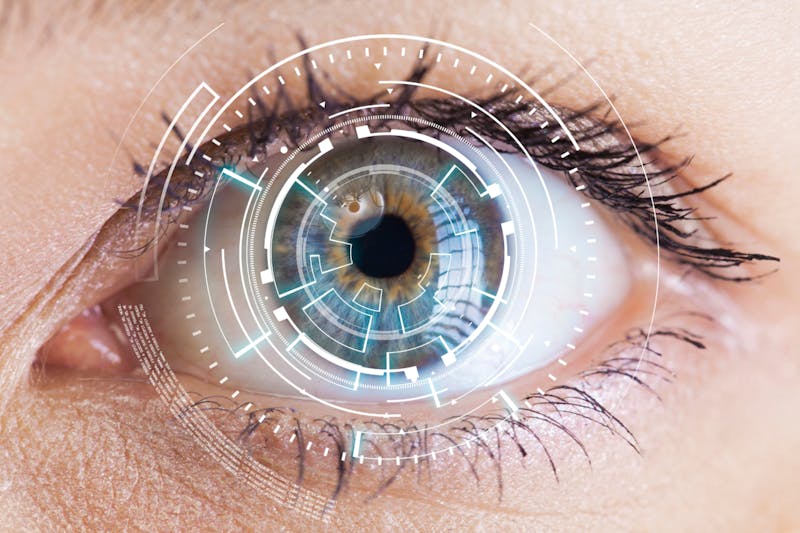
Find out whether a cataract surgery is a permanent or temporary solution:

As you age, the proteins and fibers located in your eye’s natural lens will begin to break down. When this happens, the lens starts to become cloudy and you’ll start to lose the ability to see clearly. If this starts to impact your quality of life, you can elect to have cataract surgery.
Cataract surgery is one of the most common eye surgery procedures in the world. It’s performed over four million times every year in the United States alone and performed over 28 million times around the world. Globally, there are nearly 60,000 cataract procedures every day.
And chances are those numbers are only going to continue to climb considering 90% of all people will develop cataracts by the age of 65 and a majority of those people will seek treatment.
Not only that, but cataract surgery boasts a 99% success rate with most patients noticing instant results. It’s a life-changing procedure, especially for those having a hard time seeing clearly as they age. Cataract surgery allows them to preserve their vision that much longer.
So, how long does cataract surgery last?
Cataract surgery is a quick procedure that’s also an outpatient procedure (inside the eye surgeon’s office). The actual procedure itself only takes about 15-25 minutes per eye, though you’ll need to schedule two separate appointments if you have cataracts in both eyes.
You should also account for pre-surgery and post-surgery, which can add 30-45 minutes to the overall appointment. Pre-surgery generally includes administering local anesthesia and eye drops. The eye doctor will have you wait in a resting area for 30 minutes after the surgery.
All in all, you can expect the cataract surgery appointment to last anywhere from 60-90 minutes. You’ll need someone to drive you home afterward and should expect to be back in the doctor’s office regularly during the recovery period, that way your eye health can be properly monitored.
Are the Results Temporary or Permanent?
One of the most common questions we get asked about cataract surgery is how long the results last – is it temporary or is it permanent? The simple answer is that they’re intended to be permanent, but some complications can arise that may require additional surgery or treatment.
When the eye’s natural lens is replaced with an artificial lens, the fear of cataracts forming on the new lens is eliminated – in that sense, the results are permanent. Not only that, but the artificial lens is designed to last your entire life. That’s what makes cataract surgery so effective.
With that said, nearly 20% of all cataracts patients will experience something called posterior capsule opacification (PCO). This is when a cloudy layer of scar tissue develops behind the intraocular lens, which results in the same cloudy vision or blurry vision you had before.
Don’t worry, there’s a simple solution to this – called a YAG laser capsulotomy – and a majority of patients that need it done will be gifted with clear vision. Outside of POC, other complications of cataract surgery include eye trauma, inflammation, macular edema, infection, and more.

How Does Cataract Removal Work?
When cataracts cloud up the eye’s natural, normally-clear lens, that clouded lens becomes unusable and must be replaced – picture a damaged camera lens that no longer works properly. You might get a little sight out of it, but the only way to truly fix it is by replacing it. The same goes for cataracts.
Your eye surgeon will start by making an incision in the eye – it’s a tiny incision that’s only a couple millimeters long. They then emulsify (break up) the cloudy lens with the use of ultrasound waves. Once broken up, the tiny fragments of the natural lens are suctioned up.
Through the same incision, the eye surgeon puts the artificial intraocular lens (IOL) in place and rests it on the lens capsule in the back of the lens, which was kept in-tact during the removal process. You won’t need stitches and while you’re awake, you won’t feel anything or be in pain.
If you require a YAG laser capsulotomy, which is when the lens capsule becomes cloudy, the eye surgeon will use a YAG laser to create a small opening in the posterior capsule. The opening allows light to pass through the cloudy capsule, allowing for clear vision after all.
Early Warning Signs & Symptoms of Cataracts
Developing cataracts can be heartbreaking for anyone, no matter what stage they’re in or how mature they are. The condition will only continue to worsen until cataract surgery is performed. Even at that point, your eyes are bound to experience more trouble as you continue to age.
Since early detection is often the best way to preserve your vision long-term, let’s take a look at some of the most common signs of cataracts:
- Cloudy vision; blurry vision; distorted vision
- Light sensitivity; glares or halos around lights
- Difficulty seeing at night; colors fading
- Multiple vision; double vision
- Frequently changing your eye prescription
If you experience any of these symptoms or notice a loved one complaining about any of these symptoms, contact your ophthalmologist immediately. Even when your vision is fine, you should schedule a regular appointment with your eye doctor so they can properly monitor eye health.

Don’t Wait, Schedule an Eye Exam Today!
Are you experiencing symptoms related to cataract development? Do you feel like you’re losing your vision? Has it been over a year since your last comprehensive eye exam? If you answered yes to any of the above, then it’s time to visit Dr. Omar Shakir at Coastal Eye Surgeons.
We take great pride in being able to detect cataracts in their early stages, provide treatment options before surgery is needed, perform surgery when it is needed, and monitor eye health long-term to ensure we catch the next issue early on. Together, your vision is in good hands.
Contact us today to schedule an appointment with Dr. Omar Shakir. We can’t wait to help you preserve your vision and protect your eyesight.


